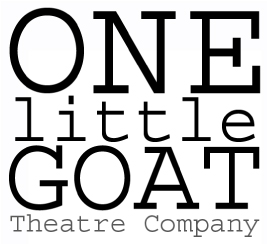Disturbing Smyth/Williams avoids sensationalism
Staging of transcript of interrogation and confession of rapist/murderer Russell Williams – and the protests around it – focus on violence against women
by Jordan Bimm, March 7, 2017
Deborah Drakeford, Lynette Gillis and Kim Nelson steer clear of sensationalism in disturbing verbatim play. (Yuri Dojc)
No one clapped after this piece of disturbing, controversial and powerful verbatim theatre. Even though there had been plenty of talent on display, the audience silently reached a collective decision not to applaud the words of one of Canada’s most heinous rapists and murderers.
The show is an all-female staged reading [staging] of the OPP transcript of the interrogation and eventual confession of Russell Williams, the former Canadian Forces colonel who in 2010 pled guilty to raping and murdering two women, sexually assaulting two others and committing dozens of sexually motivated burglaries and thefts. The 128-page transcript of Detective Jim Smyth’s questioning of Williams was released publicly and is easy to find online.
Director Adam Seelig has boiled down the hours-long conversation to 90 minutes, and cast three women to present the material. Performers Deborah Drakeford and Kim Nelson alternate reading Williams and Smyth, a choice that tamps down the sensationalism and puts women in control of the story – a very different thing than if two men were realistically acting it out. Behind them, live drummer Lynette Gillis provides hard-hitting solos where sections of the transcript are redacted – an effective counterpoint suggesting the violence missing from the cordial interview.
A turning point is reached when Smyth convinces Williams to drop his feigned innocence and confess. That confession includes Williams’s description and characterization of the crimes, and this part will likely be the hardest for people who’ve been affected by sexual assault or violent crimes.
The work’s troubling power was underlined before the show by a group of protesters outside the theatre led by a close friend of one of the victims. They distributed an open letter to audience members citing a lack of consent from the victims and their families and the potential for the show and resulting media coverage to retraumatize the surviving victims and their loved ones.
“We have had no choice or opportunity to have our thoughts, comments or criticisms integrated into the content you are about to see.” The letter points to an online petition calling for the production to cease, which has 2,200 signatures. In the program, One Little Goat addresses “those who have reached out with concerns,” arguing that “there will never be a ‘good’ time to address horrific, traumatic events, yet we cannot afford to wait if our society is to make progress in their wake.”
It’s easy to feel empathy for the protesters, who raise valid concerns about the balance between protecting victims’ rights and pursuing positive change through remembering, confronting and learning from horrible moments in history. Their presence at the theatre added an important dimension to the experience of the show. No matter who is right, this is a deeply thought-provoking, well-crafted work that makes a good-faith attempt to avoid true-crime sensationalism and focus on the problem of violence against women.


